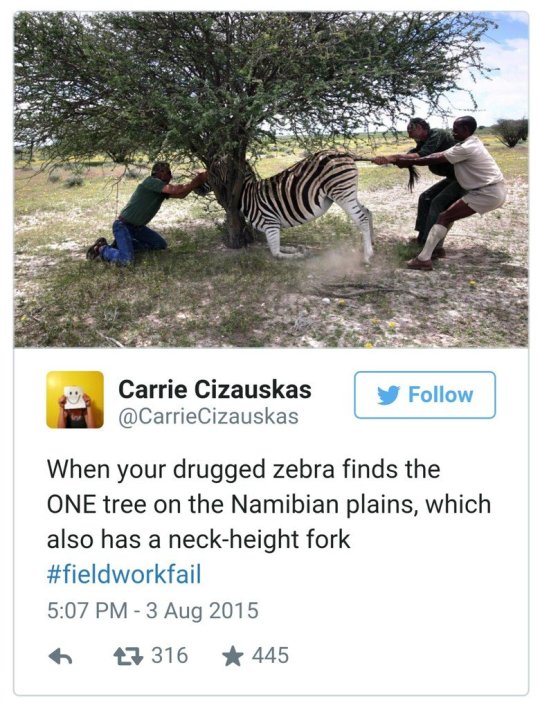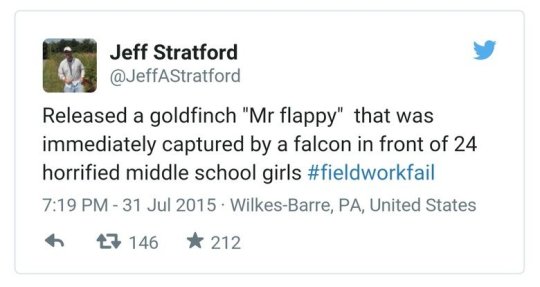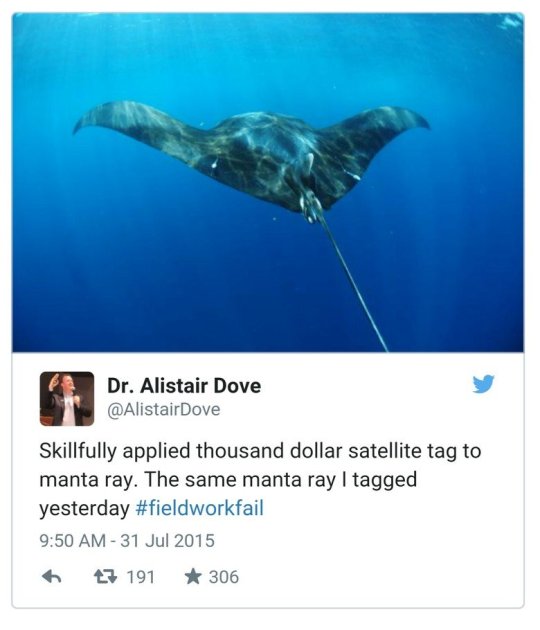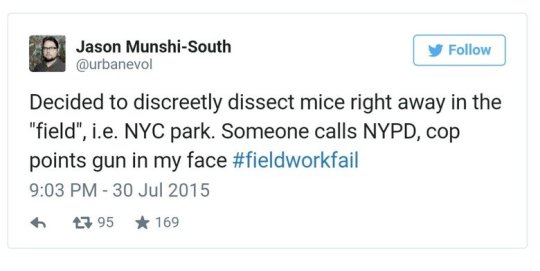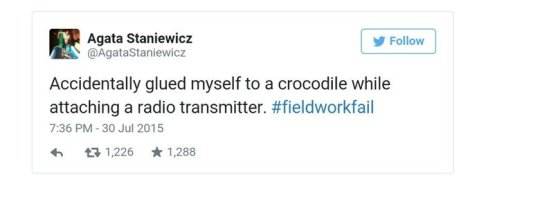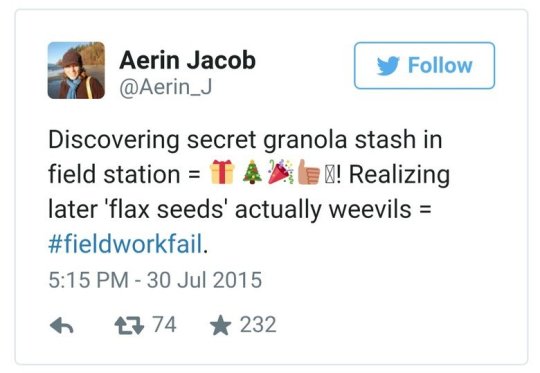Text
just saw another fic that completely misunderstood elementary schoolers. going to make a post as soon as my shift is done
16K notes
·
View notes
Text
I’ve watched this video so many times I swear I’ve memorized it.
“DON’T GET ME STARTED ON THE FUCKING NAVY-“
16K notes
·
View notes
Text
The Matriarch Isn’t the Villain. She’s the Mirror

I often hear a discourse where Celine in K-pop Demon Hunters, Alma in Encanto and Ming in Turning Red are seen as vilains. They’re the ones who restricted the younger generation, hurt them, and are ultimately responsible for their pain, trauma and self-doubt. They’re framed as the real villains of the story. But I’d like to differ.
These are stories of intergenerational trauma. They are women who survived, repressed, and tried to protect their families the only way they knew how: through control, perfectionism, and emotional suppression.

And yet, when the next generation begins to reclaim joy, freedom, softness — they become the obstacle. Not because they’re bad people, but because they’re scarred. Their minds cling to survival strategies, unable to recognize that the environment has changed.
Alma is still stuck fleeing the colonizers.
Ming is still afraid of her true self.
Celine believes that fear and mistakes must be hidden.
It’s not about hating these characters. It’s about how unprocessed trauma twists love into control. How survival, unexamined, turns into rigidity. These women were never given space to process their own pain and they project it onto their daughters and granddaughters.

And here’s something we rarely say enough: intergenerational trauma can create toxic patterns but that doesn’t always mean there was abuse or conscious harm. Even when their love becomes suffocating or controlling, these women are not necessarily “abusive parents.” They are daughters of silence, fear, and sacrifice. And they were never taught another way. It’s important to make that distinction, especially in a world that often pushes a binary, punitive reading of family dynamics.
They’re the product of a generation that was told to endure. But endurance without healing becomes its own kind of violence.

What’s powerful in these stories is that they don’t end in vengeance. They end in confrontation and transformation. The confrontation is necessary: the younger generation refuses the silence. Refuses the shame. Refuses to carry a burden that wasn’t theirs to begin with.
The house is destroyed in Encanto.
Mei accepts her full self.
So does Rumi.
And in the best cases, this confrontation allows the elder to soften too. Alma opens up. Ming listens. And I’m hoping in the sequel, Celine will open too.

Maybe that’s also why these stories speak so deeply to POC audiences. These aren’t stories about cutting ties. They’re stories about how hard it is to transform them, to protect ancestral bonds while refusing to perpetuate inherited pain. In many racialized families, collectivity, loyalty, and intergenerational duty are sacred... even when they come at the cost of personal boundaries.
And sometimes, Western individualist frameworks read these tensions as dysfunction or villainy. But for us, they’re just the difficult truth of growing up and trying to do better.
These women aren’t villains. That would be too easy. They embody the fragile, necessary work of bringing change without breaking the thread. These stories are about refusing to inherit their pain without reflection. Because love, without accountability, is not enough.
These stories show us that each generation has something to learn from the next. And the new generation must also break free from the chains they inherited while preserving what is meaningfull.

But it’s not just their story.
One day, we’ll be the older generation.
And we’ll need to be humble enough to learn from the ones after us.
So don’t be a fool.
We may be Mei, Rumi, or Mirabel today.
But tomorrow, we could be Ming, Celine, or Alma.
And when that time comes, we’ll realize how hard it is to unlearn what once kept us safe.
So let’s have compassion for all these characters.
Because these stories show us not just how the cycle of generations works, but how it can make us better, stronger, and more connected... if we’re all willing to go through the change.
∘₊✧──────✧──────✧₊∘
If you’re curious, I’ve written more on K-pop Demon Hunters:
A post on the mental health themes woven through the songs — right here.
A breakdown of Celine-Rumi in comparaison to Gothel–Rapunzel dynamic — here.
An analysis about Rumi, Jinu, and the danger of sinking together — here.
Some book recs for each of the K-pop Demon Hunters characters — here.
12K notes
·
View notes
Text
#you. you get it. #my only addendum is ahsoka is oblivious but barriss is compartmentalising
what if we decided to sacrife our short teenage lives for one of countless dubiously meaningful battles of a war with no end in sight fought by soldiers who were otherwise literally created to be expandable all for the sake of upholding obsolete and rotten institutions who systematically disregard the health and safety of their most vulnerable members while they prop up the most ineffective leaders which leaves them ripe for exploitation and abuse by malevolent actors but we were also completely oblivious to all that and thought we were saving the galaxy. and we were both girls 😳

53 notes
·
View notes
Text
You see I too often sat in school classes and thought “when am I ever going to need this, I’m never going to be an engineer, I’m never gonna be a scientist, I’m never gonna be a linguist” and then I grew up and it turns out a lot of bigots and cults and scams and grifts hinge their entire business model on you just. Not knowing what a protein is or some shit
76K notes
·
View notes
Text
[muttering to myself as I rifle through ancient tomes and scrolls] girl on girl... girl on girl... [getting increasingly agitated] where is it. WHERE IS IT!!! DAMN AND BLAST!!! [throws a dagger across the room, slitting my lackey's throat and embedding in the center of a mural of a lily flower. the flower depresses into the wall, and an unseen mechanism begins to click. the wall opens up, revealing rows of shelves stacked high with dusty old tomes.] [I walk into the room, kicking my lackey's corpse out of the way] [I pick up a book and leaf through it] [it's yaoi]
14K notes
·
View notes
Text
People can handle evil characters(for the most part--usually they twist their behavior and water it down) but people really can't handle good characters that lose their head or lose themselves and have a moment of fallen grace. Fandom has shown this time and time again. They really look at them as worse than the initial evil.
10K notes
·
View notes
Text
characters raised to be tools
Weapons. Trained, tested, forged in steel and fire. Failure is an inevitability that ends in death. Pain should not be felt--it should be recognized, familiar, and inconsequential
Martyrs. In the form of servants and princes, of leaders and underdogs. If blood is necessary, the martyr will lift their hands and offer it all
Shields. Like tempering a sword, but only to bear and not to lash out. Wounds are medals--not symbols of pride, but symbols of worth. A pretty shield is useless; scars mean a job well done
Experiments. Raised on the cold comfort of a lab table. Restraints are only necessary when they're not in their right mind. Is it honorable, to be twisted beyond recognition? Or is it just a necessary evil?
Monsters. Cruelty, caution, and regarding one as a creature beyond reasonable thought is tempering in its own right. But if you keep a leash at the right length, perhaps the massecre won't reach you. One can hope.
Idols. Pretty face, pretty name, pretty hands around their shoulders and throat. There to seduce, manipulate, force any feeling to come to the surface and twist it to their favor. Any genuinity stays locked behind the guilded cage that surrounds their pretty little heart
Trophies. Status and wealth and the traditions that keep someone at their heels, on their knees, to display and serve and decorate one's ballroom.
Sacrifices. Drenched in honorable clothes, prepared and adored and cleansed. The gift of hope at the cost of one's life. Is it taken with no fight? How can you escape the ropes you were born in?
14K notes
·
View notes
Text
The Devil's Wheel
The Devil’s Wheel
“If you say yes,” said the Devil, “a single man, somewhere in the world, will be killed on the spot. But three million dollars is nothing to sneeze at, missus.”
“What’s the catch?” You squint at him suspiciously over the red-and-black striped carnival booth. You’re smarter than he thinks you are– a devil deal always has a catch, and you’re determined to catch him before he catches you.
“Well, the catch is that you’ll know you did it. And I’ll know, too. And the big man upstairs’ll know, I ‘spose. But what’s the chariot of salvation without a little sin to grease the wheels? You can repent from your mansion balcony, looking out at your waterfront views, sipping a bellini in your eighties. But hey, it’s up to you– take my deal or leave it.”
The Devil lights a cigar without a match, taking an inhale, and blowing out a cloud of deep, sweet-smelling tobacco laced faintly with something that reminds you of rotten eggs. If he does have horns, they’re hidden under his lemon yellow carnival barker hat. He wears a clean pinstripe suit and a red bowtie. No cloven hooves, no big pointy fork, but you know he’s the Devil without having to be told. Though he did introduce himself.
He’s been perfectly polite.
You know you need the money. He knows it too, or he wouldn’t have brought you here, to this strange dark room, whisking you away from your new house in the suburbs as fast as a wish. Now you’re in some sort of warehouse, where all the windows seem to be blacked out– or, maybe, they simply look out into pitch darkness, though it is the middle of the day. A single white spotlight shines down on the two of you.
“Wait a minute, wait a minute,” you say. “I bet the man is someone I know, right? My husband?”
“Could be,” the Devil says with a pointed grin. “That’s for the wheel to decide.”
He steps back and raises his black-gloved hand as the tarp flies off of the large veiled object behind him. The light of the carnival wheel nearly blinds you. Blinking lights line the sides. Jingling music blares over speakers you can’t see. The flickering sign above it reads:
THE DEVIL’S WHEEL
“Step right up and claim your fortune,” the Devil barks. “Spin the wheel and pay the price! Or leave now, and a man keeps his life.”
You examine the wheel.
The gambling addict
The doting boyfriend
The escaped convict
The dog dad
The secretive sadist
“These are all the possible men I can kill?” You ask, thumbing the side of the wheel. It rolls smoothly in your hand. Then you quickly stop, realizing that this might constitute a spin under the Devil’s rules. He flashes a smile at you, watching you halt its motion.
“Addicts, convicts, murderers– plenty of terrible options for you to land on, missus!”
“Serial wife murderer?”
“Now who would miss a fellow like that? I can guarantee that the whole world would be better off without him in it, and that’s a fact.”
The hard worker
The compulsive liar
The animal torturer
The widower
The desperate businessman
The failed musician
The beloved son
“My husband is on here too,” you say.
“Your husband Dave, yes. The wheel has to be fair, otherwise there’s simply no stakes.”
“I know what’s gonna happen,” you say, crossing your arms. “This wheel is rigged. I’m gonna spin it around, and it’ll go through all the killers and stuff, and then it’s gonna land on my husband no matter what.”
“Why, I would never disgrace the wheel that way,” the Devil says, wounded. “I swear on my own mother’s grave– may she never escape it. In fact, take one free spin, just to test it out! This one’s on me, no death, no dollars.”
You cautiously reach up to the top of the wheel and feel its heaviness in your hand. The weight of hundreds of lives. But also, millions of dollars. You pull the wheel down and let it go.
Clackity-clackity-clackity-clackity
Round and round it goes.
The college graduate
The hockey fan
The Eagle Scout
The cold older brother
The charming younger brother
The two-faced middle child
The perfectionist
The slob
Your husband Dave
Clackity-clackity-clackity.
Finally, the wheel lands on a name. A title, really.
The photographer
“Hmm, tough, missus, but that’s the way of the wheel. But hey, look! Your husband is allllll the way over here,” he points with his cane to the very bottom of the wheel, all the way on the other side from where the arrow landed. “As you can see, it’s not rigged. The wheel truly is random.”
“So… there really isn’t another catch?” You ask.
“Isn’t it enough for you to end a man’s life? You need a steeper price? If you’re really such a glutton for punishment, I’ll gladly re-negotiate the terms.”
“No, no… wait.” You examine the wheel, glancing between it and the Devil.
You really could use that three million dollars. Newly married, new house, you and your husband’s combined debt– those student loans really follow you around. He’s quite a bit older than you, and even he hasn’t paid them off yet, to the point where the whole time you were dating you watched him stress out about money. You had to have a small, budget wedding, and a small, budget honeymoon. Three million dollars could be big for the two of you. You could re-do your honeymoon and go somewhere nice, like Hawaii, instead of just taking two weeks in Atlantic City. You deserve it.
Even so, do you really want to kill an innocent photographer? Or an innocent seasonal allergy sufferer? Or an innocent blogger? Just because you don’t know or love these people doesn’t mean that someone doesn’t.
The cancer survivor
The bereaved
The applicant
Some of these were so vague. They could be anyone, honestly. Your neighbors, your father, your friends…
The newlywed
The ex-gifted kid
The uncle
The Badgers fan
“My husband is a Badgers fan,” you say.
“How lovely,” the Devil says.
Then it hits you.
Of course.
The weightlifter.
The careful driver.
The manager.
The claustrophobe.
Your husband Dave lifts weights at the gym twice a month. You wouldn’t call him a pro, but he does it. He also drives like he’s got a bowl of hot soup in his lap all the time, because he’s afraid of being pulled over. He just got promoted to management at his company, and he takes the stairs to his seventh-story office because he hates how small and cramped the elevator is.
“I get your game,” you announce. “You thought you could get me, but I figured you out, jackass!” “Oh really? What is my game, pray tell?” The Devil responds, leaning against his cane.
“All these different titles– they’re all just different ways to describe the same guy. My husband isn’t one notch on the wheel, he’s every notch. No matter what I land on, Dave dies. I’m wise to your tricks!”
The Devil cackles.
“You’re a clever one, that’s for sure. I thought you’d never figure it out.”
“Thanks but no thanks, man,” you say with a triumphant smirk. “I’m no rube. No deal. Take me back home.”
“As you wish, missus,” the Devil says. He snaps his fingers, and you’re gone, back to your brand-new house with your new husband. “Don’t say I never tried to help anyone.”
12K notes
·
View notes
Text
#i will pedantically point out that the underwater bridge is a perfectly sensible thing though
#you build a bridge just underneath a river’s surface and hey presto
#you have a bridge that only your people know is there to cross the river somewhere unexpected
Sometimes reading Arthuriana feels like reading Alice in Wonderland.
“Well,” said Alice, “these are a dreadfully strange assortment of objects!”
“They all symbolize different aspects of Our Lord’s martyrdom,” said the Fisher King, casting a line into his teacup.
“Indeed. I am sure everything symbolizes something else, for if everything was only itself I should be very confused. Might I ask what the point of the bleeding lance is?”
Alice regretted asking the question as soon as she had done so, for she saw the pun that would likely be made about the word point. Instead, however, the room erupted in applause and shouts of “The Grail! She has achieved the Grail!”
The next castle she visited, Alice resolved to herself as the inhabitants of this one danced for joy, would be more sensible.
28K notes
·
View notes
Text
Tom Lehrer was found dead in his home this morning. He was 97 years old, so it's hard to say he was taken from us too soon, but anything short of immortality would've felt too soon for the mathematician, writer of pointed satiric songs during the early Cold War era, and writer of less pointed but no less genius songs to teach kids phonics on the 1970s PBS show "The Electric Company."
He never lost his sense of humor. In 2012, 2 Chainz asked if he could sample Lehrer's song "The Old Dope Peddler" for an upcoming track. Lehrer responded, "I grant you motherfuckers permission to do this. Please give my regards to Mr. Chainz, or may I call him 2?"
His works are all in the public domain, something which he did in 2020.
5K notes
·
View notes
Text
genuinely one of the worst things that’s happened to television in the last few years (exacerbated by streaming services) is death of Filler. going from 20 episodes to 8 because “we didn’t really need that episode where the main characters went to the beach right? it had no long lasting effect” but we DID!!! we needed to see how they act without the Big Bad Plot and to establish the dynamics between the characters and lay in the sun (do they forget sunscreen? how do they react to a thieving seagull? do they get buried in the sand or do they do the burying?). the plot isn’t everything. the action doesn’t hit as hard without the quiet moments. give us character development and our little scenes back
131K notes
·
View notes
Text
I genuinely believe that a lot of the reason that the American left is so ineffectual and self-sabotaging is because of how deeply and unrepentantly calvinist it is.
9K notes
·
View notes
Text
the thing is, if your younger self was a bigot or an abuser, u can't make people forgive you. but you still gotta forgive yourself, like that's non-negotiable, dude. that happens before u can even ask the question of earning forgiveness from anyone lese
123K notes
·
View notes
Text
"People have been telling stories about renewable energy since the nineteen-seventies, when the first all-solar-powered house opened on the campus of the University of Delaware, drawing a hundred thousand visitors in 1973, its first year, to marvel at its early photovoltaic panels and its solar hot-water system, complete with salt tubs in the basement to store heat overnight. But, even though we’ve got used to seeing solar panels and wind turbines across the landscape in the intervening fifty years, we continue to think of what they produce as “alternative energy,” a supplement to the fossil-fuelled power that has run Western economies for more than two centuries. In the past two years, however, with surprisingly little notice, renewable energy has suddenly become the obvious, mainstream, cost-efficient choice around the world. Against all the big bad things happening on the planet (and despite all the best efforts of the Republican-led Congress in recent weeks), this is a very big and hopeful thing, which a short catalogue of recent numbers demonstrates:
It took from the invention of the photovoltaic solar cell, in 1954, until 2022 for the world to install a terawatt of solar power; the second terawatt came just two years later [in 2024], and the third will arrive either later this year or early next [in 2025 or early 2026].
That’s because people are now putting up a gigawatt’s worth of solar panels, the rough equivalent of the power generated by one coal-fired plant, every fifteen hours. Solar power is now growing faster than any power source in history, and it is closely followed by wind power—which is really another form of energy from the sun, since it is differential heating of the earth that produces the wind that turns the turbines.
Last year, ninety-six per cent of the global demand for new electricity was met by renewables, and in the United States ninety-three per cent of new generating capacity came from solar, wind, and an ever-increasing variety of batteries to store that power.
In March, for the first time, fossil fuels generated less than half the electricity in the U.S. In California, at one point on May 25th, renewables were producing a record hundred and fifty-eight per cent of the state’s power demand. Over the course of the entire day, they produced eighty-two per cent of the power in California, which, this spring, surpassed Japan to become the world’s fourth-largest economy.
Meanwhile, battery-storage capability has increased seventy-six per cent, based on this year’s projected estimates; at night, those batteries are often the main supplier of California’s electricity. As the director of reliability analysis at the North American Electric Reliability Corporation put it, in the CleanTechnica newsletter, “batteries can smooth out some of that variability from those times when the wind isn’t blowing or the sun isn’t shining.” As a result, California is so far using forty per cent less natural gas to generate electricity than it did in 2023, which is the single most hopeful statistic I’ve seen in four decades of writing about the climate crisis.
Texas is now installing renewable energy and batteries faster than California; in a single week in March, it set records for solar and wind production as well as for battery discharge. In May, when the state was hit by a near-record-breaking early-season heat wave, air-conditioners helped create a record demand on the grid, which didn’t blink—more than a quarter of the power came from the sun and wind. Last week’s flooding tragedy was a reminder of how vulnerable the state is to extreme weather, especially as water temperatures rise in the Gulf, producing more moisture in the air; in late June, the director of the state’s utility system said that the chances of emergency outages had dropped from sixteen per cent last summer to less than one per cent this year, mostly because the state had added ten thousand megawatts of solar power and battery storage. That, he said, “puts us in a better position.”
All this is dwarfed by what’s happening in China, which currently installs more than half the world’s renewable energy and storage within its own borders, and exports most of the solar panels and batteries used by the rest of the world. In May, according to government records, China had installed a record ninety-three gigawatts of solar power—amounting to a gigawatt every eight hours. The pace was apparently paying off—analysts reported that, in the first quarter of the year, total carbon emissions in China had actually decreased; emissions linked to producing electricity fell nearly six per cent, as solar and wind have replaced coal. In 2024, almost half the automobiles sold in China, which is the world’s largest car market, were full or hybrid electric vehicles. And China’s prowess at producing cheap solar panels (and E.V.s) means that nations with which it has strong trading links—in Asia, Africa, South America—are seeing their own surge of renewable power.
In South America, for example, where a decade ago there were plans to build fifteen new coal-fired power plants, as of this spring there are none. There’s better news yet from India, now the world’s fastest-growing major economy and most populous nation, where data last month showed that from January through April a surge in solar production kept the country’s coal use flat and also cut the amount of natural gas used during the same period in 2024 by a quarter. But even countries far from Beijing are making quick shifts. Poland—long a leading coal-mining nation—saw renewable power outstrip coal for electric generation in May, thanks to a remarkable surge in solar construction. In 2021, the country set a goal for photovoltaic power usage by 2030; it has already tripled that goal.
Over the past fifteen years, the Chinese became so skilled at building batteries—first for cellphones, then cars, and now for entire electric systems—that the cost of energy storage has dropped ninety-five per cent. On July 7th, a round of bidding between battery companies to provide storage for Chinese utilities showed another thirty per cent drop in price. Grid-scale batteries have become so large that they can power whole cities for hours at a time; in 2025, the world will add eighty gigawatts of grid-scale storage, an eightfold increase from 2021. The U.S. alone put up four gigawatts of storage in the first half of 2024.
There are lots of other technologies vying to replace fossil fuels or to reduce climate damage: nuclear power, hydrogen power, carbon capture and storage; along with renewables, all were boosted by spending provisions in Biden’s Inflation Reduction Act and will be hampered to varying degrees by congressional rollbacks. Some may prove useful in the long run and others illusory, but for now they are statistically swamped by the sheer amount of renewable power coming online. Globally, roughly a third more power is being generated from the sun this spring than last. If this exponential rate of growth can continue, we will soon live in a very different world.
All this suggests that there is a chance for a deep reordering of the earth’s power systems, in every sense of the word “power,” offering a plausible check to not only the climate crisis but to autocracy. Instead of relying on scattered deposits of fossil fuel—the control of which has largely defined geopolitics for more than a century—we are moving rapidly toward a reliance on diffuse but ubiquitous sources of supply. The sun and the wind are available everywhere, and they complement each other well; when sunlight diminishes in the northern latitudes at the approach of winter, the winds pick up. This energy is impossible to hoard and difficult to fight wars over. If you’re interested in abundance, the sun beams tens of thousands of times more energy at the earth than we currently need. Paradigm shifts like this don’t come along often: the Industrial Revolution, the computer revolution. But, when they do, they change the world in profound and unpredictable ways...
In retrospect, it’s reasonably easy to see how fast solar and wind power were coming. But, blinkered by the status quo, almost no one actually predicted it. In 2009, the International Energy Agency predicted that we would hit two hundred and forty-four gigawatts of solar capacity by 2030; we hit it by 2015. For most of the past decade, the I.E.A.’s five-year forecasts missed [underestimated the amount of renewables] by an average of two hundred and thirty-five per cent. The only group that came even remotely close to getting it right was not J. P. Morgan Chase or Dow Jones or BlackRock. It was Greenpeace, which estimated in 2009 that we’d hit nine hundred and twenty-one total gigawatts by 2030. We were more than fifty per cent above that by 2023. Last summer, Jenny Chase, who has been tracking the economics of solar power for more than two decades for Bloomberg, told the Times, “If you’d told me nearly 20 years ago what would be the case now, 20 years later, I would have just said you were crazy. I would have laughed in your face. There is genuinely a revolution happening.”
-via The New Yorker, July 9, 2025
5K notes
·
View notes


